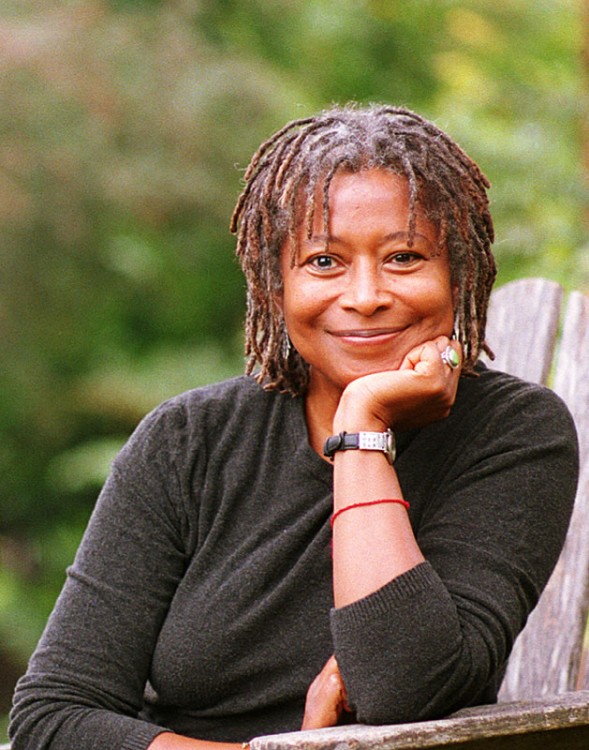Happy Birthday, Alice Walker!
Share
Explore Our Galleries
Breaking News!
Today's news and culture by Black and other reporters in the Black and mainstream media.
Ways to Support ABHM?
From Wikipedia
Alice Malsenior Walker (born February 9, 1944) is an American author, poet, and activist. She has written both fiction and essays about race and gender.

She is best known for the critically acclaimed novel The Color Purple (1982) for which she won the National Book Award and the Pulitzer Prize.
Walker was born in Eatoton, Georgia, the youngest of eight children, to Willie Lee Walker and Minnie Lou Tallulah Grant. Her father, who was, in her words, “wonderful at math but a terrible farmer,” earned only $300 a year from sharecropping and dairy farming. Her mother supplemented the family income by working as a maid. She worked 11 hours a day for USD $17 per week to help pay for Alice to attend college.
Living under Jim Crow laws, Walker’s parents resisted landlords who expected the children of black sharecroppers to work the fields at a young age. A white plantation owner said to her that black people had “no need for education.” Minnie Lou Walker said, “You might have some black children somewhere, but they don’t live in this house. Don’t you ever come around here again talking about how my children don’t need to learn how to read and write.” Her mother enrolled Alice in first grade at the age of four.
Growing up with an oral tradition, listening to stories from her grandfather (the model for the character of Mr. in The Color Purple), Walker began writing, very privately, when she was eight years old. “With my family, I had to hide things,” she said. “And I had to keep a lot in my mind.”
Read more of Walker’s biography here.
Read more Breaking News here.









Comments Are Welcome
Note: We moderate submissions in order to create a space for meaningful dialogue, a space where museum visitors – adults and youth –– can exchange informed, thoughtful, and relevant comments that add value to our exhibits.
Racial slurs, personal attacks, obscenity, profanity, and SHOUTING do not meet the above standard. Such comments are posted in the exhibit Hateful Speech. Commercial promotions, impersonations, and incoherent comments likewise fail to meet our goals, so will not be posted. Submissions longer than 120 words will be shortened.
See our full Comments Policy here.